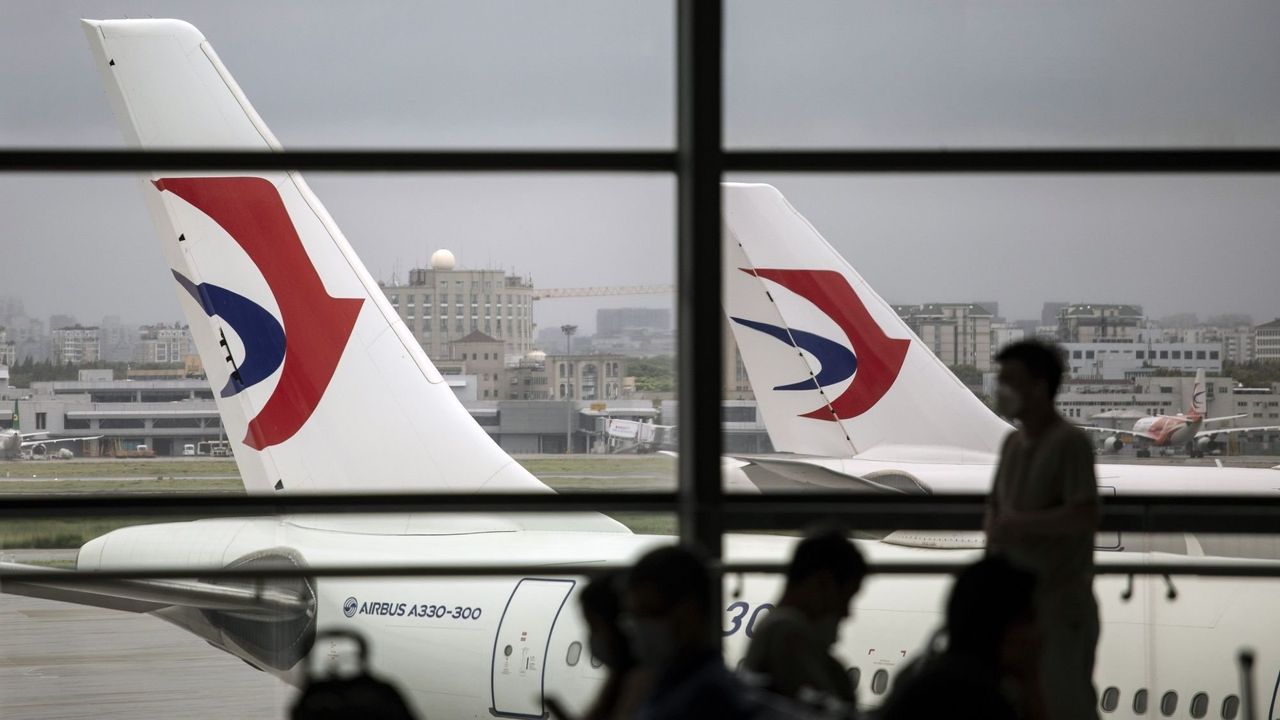News
People in China Rush to Book Travel as Border Restrictions Lifted

After Beijing announced that its borders would reopen it’s borders next month, people in China rushed to book international travel. Passport applications in China for citizens wishing to travel abroad will be resumed on January 8, according to China’s immigration administration.
It comes after an announcement on Monday that nearly three years of strict quarantine rules for arrivals were lifted. Since then, travel websites have reported an increase in traffic. However, Chinese tourists will not be able to visit all countries.
According to the BBC, because of an increase in cases, Japan, one of the most popular destinations for Chinese tourists, has announced that all Chinese visitors must show a negative Covid-19 test upon arrival or face quarantine for seven days.
India has also stated that visitors from China (as well as some other countries) must present a negative Covid-19 test upon arrival, though this was announced prior to Beijing’s relaxation of restrictions.
The relaxation of travel restrictions in China, the final component of the country’s Zero-Covid policy, comes as the country battles a new wave of infections.
Resentment of the government’s policy, which sparked rare public protests against President Xi Jinping in November, resulted in a relaxation of Covid-19 restrictions throughout the country.
However, there was an increase in Covid-19 cases, with reports of hospitals being overcrowded and drugs running out.
The announcement on outbound travel came on the heels of Monday’s announcement, which abolished quarantine rules for visitors arriving in China. It also removed a limit on the number of flights per day.
China downgrades Covid-19
The National Health Commission announced the same day that Covid-19 would be formally downgraded to a Class B infectious disease on January 8th, 2023. People were strongly discouraged from traveling abroad prior to the relaxation of travel rules.
According to marketing solutions company Dragon Trail International, the sale of outbound group and package travel has been prohibited.
Within half an hour of the announcement that China’s borders would reopen on Monday, data from the travel website Trip.com, which was cited in Chinese media, showed that searches for popular destinations had increased tenfold year on year.
The most popular destinations were Macau, Hong Kong, Japan, Thailand, and South Korea.
Furthermore, the Chinese travel agency Qunar saw a seven-fold increase in flight inquiries on its website within the first 15 minutes of the announcement, according to the China Daily.
According to Statista, the number of outbound Chinese tourists in 2019 was 155 million prior to the pandemic. This figure is expected to fall to 20 million by 2020.
Chinese people overjoyed
Some Chinese people are hoping to visit family and loved ones during Chinese New Year, which begins on January 22. However, there has been a mixed reaction within China.
“I’m overjoyed, but also speechless. If we’re going to do this [reopening], why did I have to put up with all the daily Covid-19 tests and lockdowns this year?” said Rachel Liu, a Shanghai resident.
She said she had been on lockdown for three months in April, but that nearly everyone in her family had become infected in recent weeks.
Her parents, grandparents, and partner, who live in three different cities – Xi’an, Shanghai, and Hangzhou – all had fevers last week, she said.
Many people have expressed concern about borders reopening as Covid-19 cases increase.
“Why can’t we just wait for this wave to pass before we open up? Medical personnel are already exhausted, and elderly people cannot survive two infections in one month “read one of Weibo‘s most popular comments.
People in cities such as Beijing and Shanghai, which have cold winters, say they are running out of flu and cold medicine.
Because crematoriums are overcrowded, hundreds of deaths may go unreported.
Authorities in Beijing say they plan to distribute Pfizer tablets called Paxlovid to try to reduce the severity of infections. However, health centers contacted by The Global Times on Monday stated that the drug had not yet been delivered.
President Xi issued his first remarks on the changes on Monday, urging officials to do whatever was “feasible” to save lives.
Mr. Xi is in a difficult position as a result of China’s U-turn. He was the driving force behind Zero-Covid, which many criticized for severely restricting people’s lives and crippling the economy.
Analysts say that now that he has abandoned it, he must accept responsibility for the massive wave of infections and hospital admissions. Many people have wondered why the country was not better prepared.

















![Play Online Blackjack In Australia [2024]: Top 10 Online Australian Blackjack Sites 16 Play Online Blackjack in Australia [2024]: Top 10 Online Australian Blackjack Sites](https://www.chiangraitimes.com/wp-content/uploads/2024/03/word-image-303235-1-80x80.jpeg)












